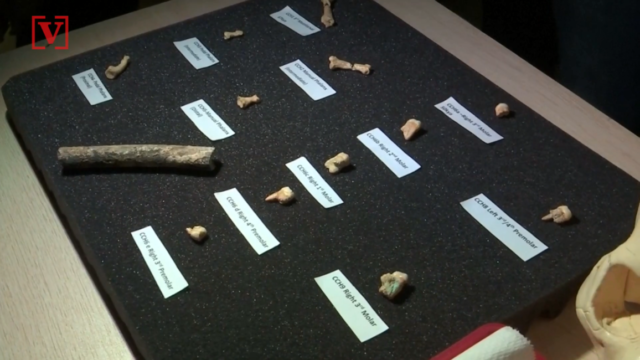
A long-lost, tiny species of early human has been discovered in a cave in the Philippines. Josh King has the details
Humankind’s tangled shrub of ancestry now has a new branch: Researchers in the Philippines announced Wednesday that they have discovered a species of ancient human previously unknown to science.
The small-bodied hominin, named Homo luzonensis, lived on the island of Luzon at least 50,000 to 67,000 years ago. The hominin—identified from a total of seven teeth and six small bones—hosts a patchwork of ancient and more advanced features. The landmark discovery, announced in Nature on Wednesday, makes Luzon the third Southeast Asian island in the last 15 years to bear signs of unexpectedly ancient human activity.
“For a long, long time, the Philippine islands [have] been more or less left [out],” says study coauthor and project leader Armand Mijares, an archaeologist at the University of the Philippines Diliman and a National Geographic grantee. But H. luzonensis flips the script, and it continues to challenge the outdated idea that the human line neatly progressed from less advanced to more advanced species.
HUMAN ORIGINS 101
The story of human evolution began about seven million years ago, when the lineages that lead toHomo sapiens and chimpanzees separated. Learn about the early human species that belong in our family tree and how the natural selection of certain physical and behavioral traits defined what it means to be human.












